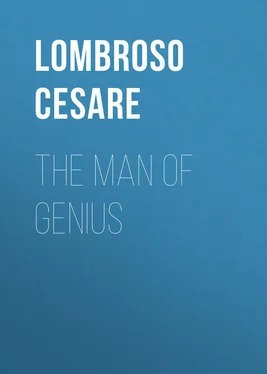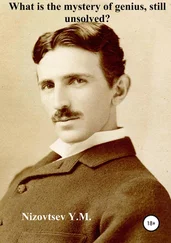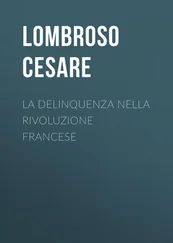Cesare Lombroso - The Man of Genius
Здесь есть возможность читать онлайн «Cesare Lombroso - The Man of Genius» — ознакомительный отрывок электронной книги совершенно бесплатно, а после прочтения отрывка купить полную версию. В некоторых случаях можно слушать аудио, скачать через торрент в формате fb2 и присутствует краткое содержание. Жанр: foreign_antique, foreign_prose, на английском языке. Описание произведения, (предисловие) а так же отзывы посетителей доступны на портале библиотеки ЛибКат.
- Название:The Man of Genius
- Автор:
- Жанр:
- Год:неизвестен
- ISBN:нет данных
- Рейтинг книги:5 / 5. Голосов: 1
-
Избранное:Добавить в избранное
- Отзывы:
-
Ваша оценка:
- 100
- 1
- 2
- 3
- 4
- 5
The Man of Genius: краткое содержание, описание и аннотация
Предлагаем к чтению аннотацию, описание, краткое содержание или предисловие (зависит от того, что написал сам автор книги «The Man of Genius»). Если вы не нашли необходимую информацию о книге — напишите в комментариях, мы постараемся отыскать её.
The Man of Genius — читать онлайн ознакомительный отрывок
Ниже представлен текст книги, разбитый по страницам. Система сохранения места последней прочитанной страницы, позволяет с удобством читать онлайн бесплатно книгу «The Man of Genius», без необходимости каждый раз заново искать на чём Вы остановились. Поставьте закладку, и сможете в любой момент перейти на страницу, на которой закончили чтение.
Интервал:
Закладка:
Sophocles, Humboldt, Fontenelle, Brougham, Xenophon, Cato the Elder, Michelangelo, Petrarch, Bettinelli, died at 90; Passeroni, Auber, Manzoni, Xavier de Maistre at 89; Hobbes at 92; Dandolo at 97; Titian at 99; Cassiodorus and Mlle. Scudéry at 94; Viennet and Diogenes at 91; Voltaire, Franklin, Watt, John of Bologna, Vincent de Paul, Baroccio, Young, Talleyrand, Raspail, Grimm, Herschel, Metastasio at 84; Victor Hugo, Donatello, Goethe, Wellington at 83; Zingarelli, Metternich, Theodore de Beza, Lamarck, Halley at 86; Bentham, Newton, St. Bernard de Menthon, Bodmer, Luini, Scarpa, Bonpland, Chiabrera, Carafa, Goldoni at 85; Thiers, Kant, Maffei, Amyot, Villemain, Wieland, Littré at 80; Anacreon, Mercatori, Viviani, Buffon, Palmerston, Casti, J. Bernouilli, Pinel at 81; Galileo, Euler, Schlegel, Béranger, Louis XIV., Corneille, Cesarotti at 78; Herodotus, Rossini, Cardan, Michelet, Boileau, Garibaldi, Archimedes, Paisiello, Saint Augustine at 75; Tacitus and B. Disraeli at 76; Pericles at 70; Thucydides at 69; Hippocrates at 103; and Saint Anthony at 105.
According to Beard the average life of 500 men of genius is 54, and that of 100 modern men of genius is 70. The average duration of life of 35 men of musical genius was 63 years, and 8 months. 147 147 Fiorentino, La Musica , Rome, 1884.
But this fact does not exclude degeneration when, as among persons with moral insanity, it is united with an apathy which renders temperaments otherwise mobile, insensible to the strongest griefs, and I have shown in another book 148 148 L’Uomo Delinquente , 1889.
that instinctive criminals, living out of prison, enjoy great longevity. It should be added that longevity is not always found in genius; many great men of genius, such as Raphael, Pascal, Burns, Keats, Byron, Mozart, Felix Mendelssohn, Bellini, Bichat, Pico de la Mirandola died before the age of forty.
CHAPTER IV.
Genius and Insanity
Resemblance between genius and insanity – Men and women of genius who have been insane – Montanus – Harrington – Haller – Schumann – Gérard de Nerval – Baudelaire – Concato – Mainländer – Comte – Codazzi – Bolyai – Cardan – Tasso – Swift – Newton – Rousseau – Lenau – Széchényi – Hoffmann – Foderà – Schopenhauer – Gogol.
THE resemblance between insanity and genius, although it does not show that these two should be confounded, proves at all events that one does not exclude the other in the same subject.
In fact, without speaking of the numerous men of genius who at some period of their lives were subject to hallucinations or insanity, or of those who, like Vico, terminated a great career in dementia, how many great thinkers have shown themselves all their lives subject to monomania or hallucinations!
In recent times insanity has shown itself in Farini, Brougham, Southey, Govone, Gounod, Gutzkow, Monge, Fourcroy, Cowper, Rocchia, Ricci, Fenicia, 149 149 Mastriani, Sul Genio e la Follia , Naples, 1881.
Engel, Pergolese, Batjusckoff, Mürger, William Collins, Techner, Hölderlen, Von der West, Gallo, Spedalieri, Bellingeri, Salieri, Johannes Müller, Lenz, Barbara, Fuseli, Petermann, the caricaturist Cham, Hamilton, Poe, Uhlrich.
In France, remarks Martini, many young and original poets have died insane. 150 150 Tra un Sigaro e l’altro , p. 194.
Such also seems to have been the fate of Briffault, and of Laurent attacked by a veritable mania of calumny. 151 151 Max. du Camp, Souvenirs , 1884.
Among women Günderode, Stieglitz (who both committed suicide with great deliberation), Brachmann, L. E. Landon lived and died insane. 152 152 Schilling, Psychiatr. Briefe. , p. 488, 1863.
Montanus, a victim to solitude and a disordered imagination, was convinced that he had become a grain of wheat. He refused to move for fear of being swallowed by birds. 153 153 Zimmermann, Solitude .
Harrington is said to have imagined that diseases took the form of bees and flies, and for this reason he retired to a cabin armed with a broom to disperse them. Haller believed that he was persecuted by men and damned by God on account of the vileness of his soul and his heretical works. He could only soothe his excessive terror by enormous doses of opium and by converse with priests. 154 154 Tagebuch , 1787, Berne.
Ampère burnt a treatise on the future of chemistry believing he had written it by Satanic suggestion. The great Dutch artist, Van Goes, thought he was possessed. Carlo Dolce, a prey to religious monomania, vowed only to paint religious pictures. He devoted his pencil to Madonnas, though his Madonna, indeed, is the portrait of Balduini. On his wedding-day he alone was missing; after some hours he was found prostrated before the altar of the Annunciation. Nathaniel Lee, the dramatist, composed thirteen tragedies during the course of his disease; one day a feeble dramatic colleague told him that it was easy to write like a madman. “It is not easy to write like a madman,” he replied, “but it is very easy to write like a fool.” Thomas Lloyd, who wrote excellent verse, was a strange mixture of malice, pride, genius, and insanity. 155 155 Sketches of Bedlam , 1823.
If he was not satisfied with his verses he put them in his glass to polish them, as he said. Everything that he came across, even coal, paper, and tobacco, he was accustomed to mix with his food for hygienic reasons; the carbon purified it, stone imparted mineral virtues, &c. Charles Lamb in early life had an attack of insanity which was hereditary in his family; writing of this to Coleridge, he said: “At some future time I will amuse you with an account, as full as my memory will permit, of the strange turns my frenzy took. I look back upon it at times with a gloomy kind of envy, for, while it lasted, I had many, many hours of pure happiness. Dream not, Coleridge, of having tasted all the grandeur and wildness of fancy till you have gone mad. All now seems to me vapid, or comparatively so.”
Robert Schumann (1810-1856), the precursor of the music of the future, was the youngest son of a well-to-do bookseller in Zwickau, and met with no obstacles in the pursuit of his cherished art. When a law student he met Clara Wieck, the celebrated pianist, and in her found an excellent and lovable companion; but at the age of twenty-three he became subject to melancholia; at forty-six he was pursued by turning-tables which knew everything; he heard sounds which developed into concords and even whole compositions. For several years he was afraid of being sent to a lunatic asylum; Beethoven and Mendelssohn dictated musical combinations to him from their tombs. In 1854 he threw himself into the Rhine; he was saved, and died two years later in a private asylum at Bonn. The autopsy revealed osteophytes, thickening of the cranial membranes and atrophy of the brain. 156 156 Biographie , by Wasielewski, Dresden, 1858.
Gérard de Nerval was subject to folie circulaire , with alternate periods of exaltation and depression, each of which lasted six months. In his moments of calm he was a spiritualist; he heard the spirits of Adam, Moses, and Joshua in a piece of furniture; and practised cabalistic exorcisms, executing the dance of the Babylonians. During his stay at an asylum he imagined that it was the superintendent who was a victim to insanity. “He believes,” he said, “that he is superintending an asylum, but he is himself the madman and we feign madness in order to humour him.” With the honey of flowers he traced on paper symbols which radiated round a fantastic giantess who united the characters of Diana, Saint Rosalie, and of an actress named Colon with whom he believed he was in love. In reality he adored her from a great distance, sending her large bouquets, and buying enormous opera-glasses in order to see her, and superb canes with which to applaud her; so that it was said of him that he ruined himself in orgies of opera-glasses and debaucheries of canes. He had discovered a mediæval bed which was to serve for his amours , and in order to set it in suitable surroundings he obtained an apartment and luxurious furniture. In days of poverty the furniture was sold, leaving the bed alone in the room, then in a barn, and at last it also disappeared, and its proprietor passed his nights in taverns and low lodging-houses, or writing beneath trees and porches. Later, when he had ceased to see Colon, she became for him a kind of idol with which he lived and who in his mystic ideas became confounded partly with the saints and partly with the stars; one day he declared that she was an incarnation of Saint Theresa. When he heard that she had declared she had never loved him and only seen him once, which was true, he said: “What good if she had loved me?” and he added, quoting a verse of Heine, “He who loves for the second time without hope is a madman. I am that madman. The sky, the sun, the stars laugh at it; I also laugh at it, laugh at it and die of it.”
Читать дальшеИнтервал:
Закладка:
Похожие книги на «The Man of Genius»
Представляем Вашему вниманию похожие книги на «The Man of Genius» списком для выбора. Мы отобрали схожую по названию и смыслу литературу в надежде предоставить читателям больше вариантов отыскать новые, интересные, ещё непрочитанные произведения.
Обсуждение, отзывы о книге «The Man of Genius» и просто собственные мнения читателей. Оставьте ваши комментарии, напишите, что Вы думаете о произведении, его смысле или главных героях. Укажите что конкретно понравилось, а что нет, и почему Вы так считаете.












